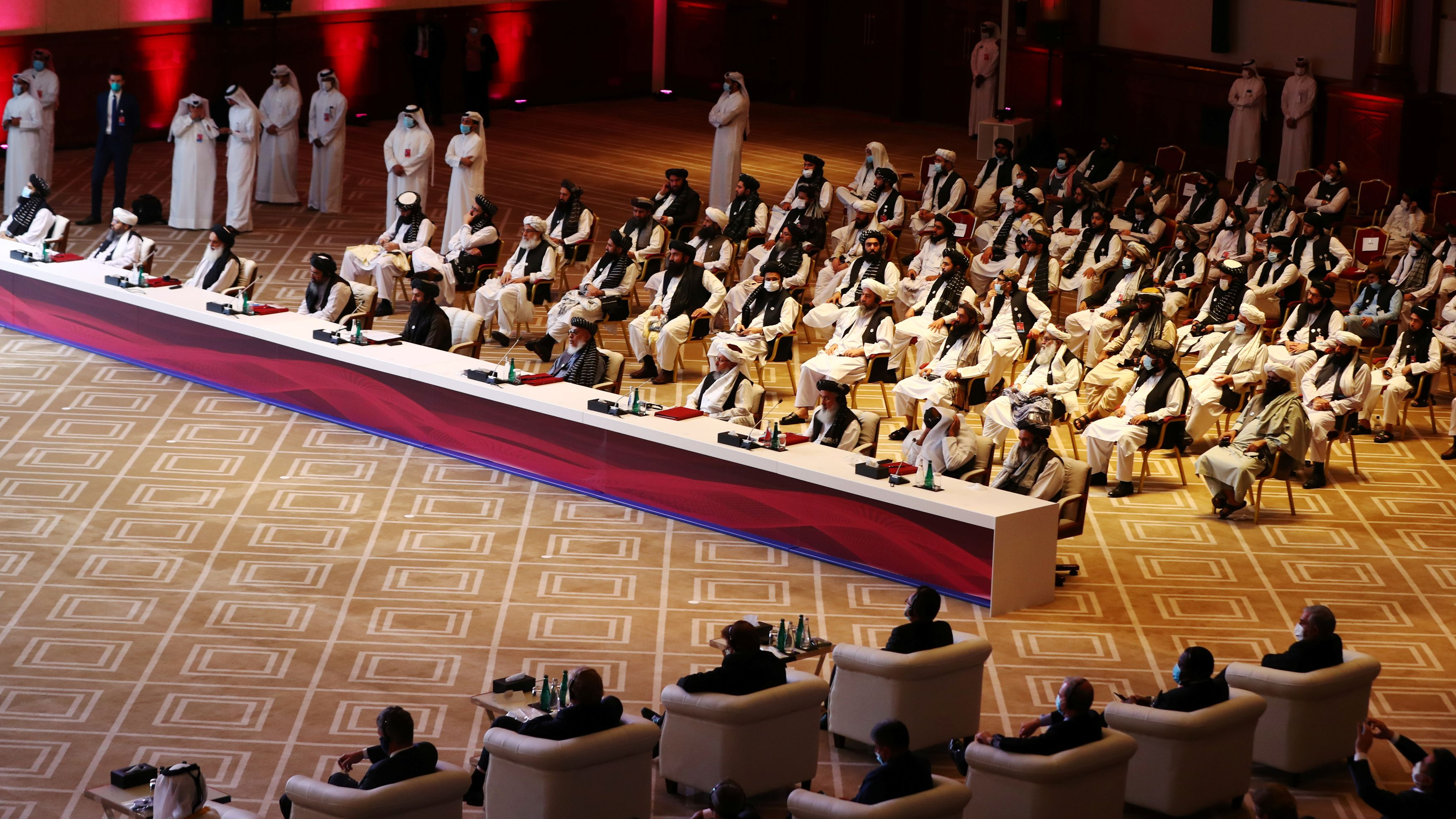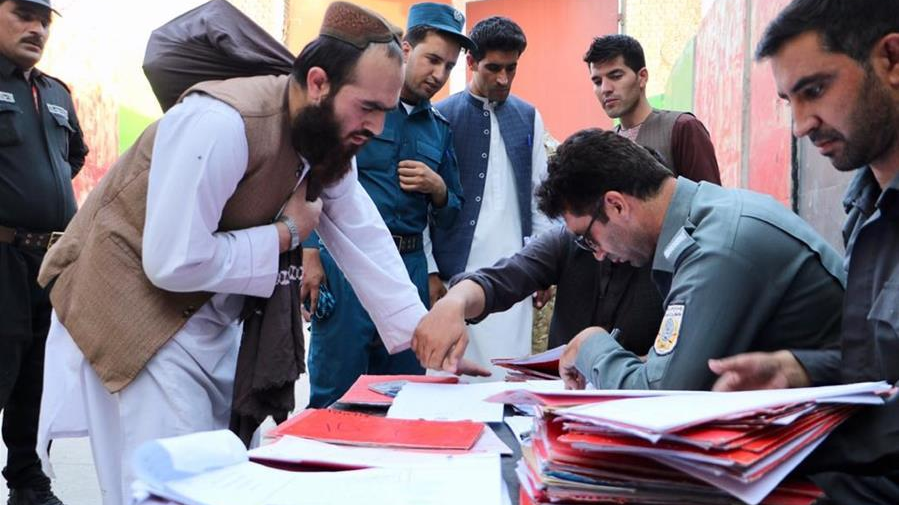Afghan government forces and Taliban clashed across Afghanistan hours after the start of long-awaited peace talks in Doha on Saturday, officials said.
Talks between the two sides were to begin shortly after a U.S.-Taliban agreement in February, but began only over the weekend after months of delay, caused in part by continuing Taliban offensives in the war-torn country.
"With the start of intra-Afghan talks, we were expecting the Taliban to reduce the number of their attacks, but unfortunately their attacks are still going in high numbers," said Fawad Aman, a spokesman for the Afghan Defense Ministry.
Read more: Afghan government calls for ceasefire as peace talks with Taliban begin
02:15

Representatives from a number of countries who spoke at the inauguration of the peace talks called on the Taliban to announce an immediate ceasefire before negotiators sat down to find a way to end decades of war in Afghanistan.
China calls for non-interference in Afghan-Taliban talks
Chinese State Councilor and Foreign Minister Wang Yi said the negotiations must be Afghan-led and Afghan-owned, no external forces should exploit the process for their selfish interests, and it is vital for all sides to provide more support and ensure collaboration for the peace process.
"Cessation of violence and durable peace is the strongest wish of over 37 million Afghan people and the shared expectation of the regional countries and the international community," he said.
Wang said Afghanistan's future arrangements should be broadly representative and inclusive for all parties, ethnicities and religious groups to participate equally.
Afghanistan should be promoting its peaceful development by directly addressing thorny problems such as poverty and drugs, cracking down on terrorism and following a peaceful and friendly foreign policy, the Chinese foreign minister said.

Afghan security force members make registrations for released Taliban prisoners in Kabul, August 14, 2020. /Xinhua
Afghan security force members make registrations for released Taliban prisoners in Kabul, August 14, 2020. /Xinhua
The Taliban did not say anything about a possible ceasefire at the ceremony. Achieving a significant reduction in violence and how to get to a permanent ceasefire would be among the first issues the sides would discuss when they meet on Sunday, the head of Afghanistan's peace council, Abdullah Abdullah, told Reuters on Saturday.
No meeting between the two was reported by either side in Doha on Sunday, but Qatar's state news agency reported that teams led by Taliban's political chief Mullah Abdul Ghani Baradar and Abdullah had met the Qatari Emir.
Aman said that, on Friday, the eve of the inauguration of the talks, the Taliban had carried out 18 attacks against government forces and installations across the country, inflicting heavy casualties.
"We don't have exact information about Taliban attacks on Saturday, but I can say the number of attacks has increased instead of decreased."
Taliban attacks on Saturday night were confirmed by officials in the provinces of Kapsia and Kunduz.
Taliban spokesman Zabihullah Mujahid said in a statement that the insurgent group attacked a convoy of Afghan forces that had arrived to launch an operation along a key highway in Kunduz. He added that security forces carried out air and artillery strikes on Saturday night in the provinces of Baghlan and Jowzjan.
(With input from Reuters)
(Cover: Delegates attend talks between the Afghan government and Taliban insurgents in Doha, Qatar, September 12, 2020. /Reuters)